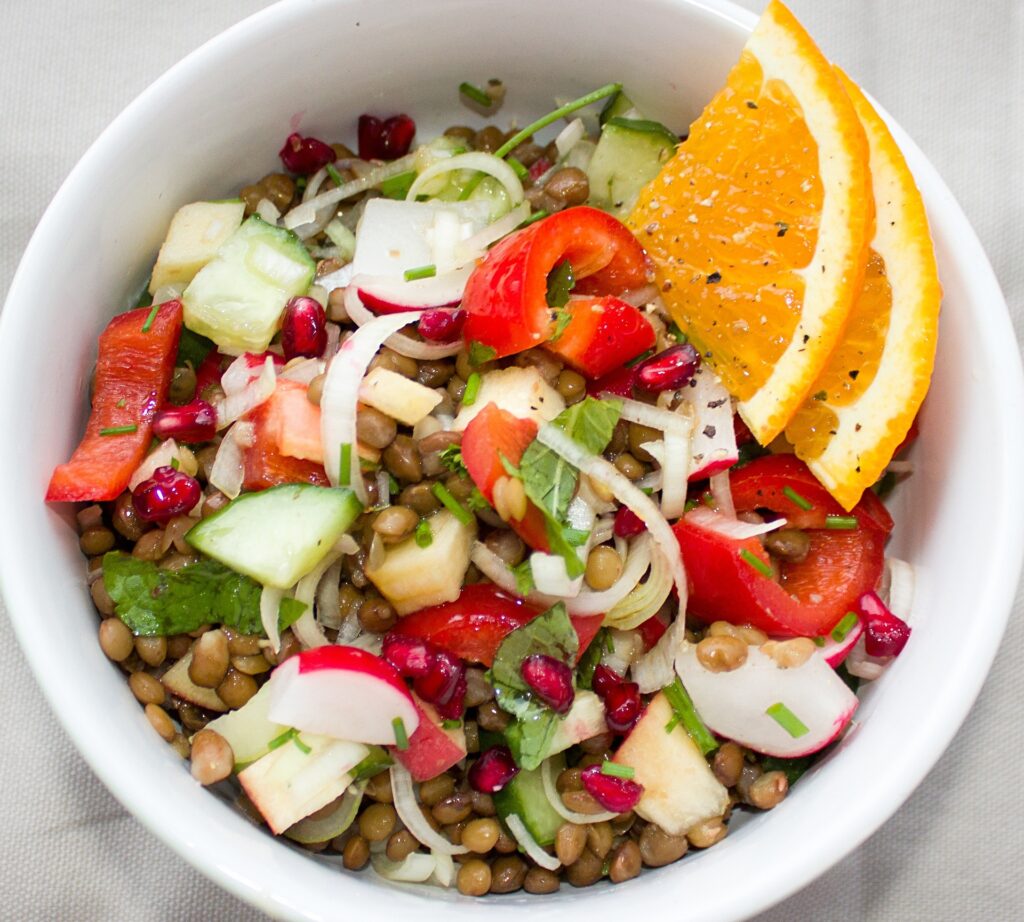The fact that so many people are already going vegan has a good reason. Or more precisely: many good reasons. Vegan nutrition protects animals and the environment, protects the climate and has benefits for health and well-being.
What does Vegan mean
Vegan means not consuming animal products such as meat, fish meat, milk, honey and eggs. Vegans also do not wear clothing or shoes made from animal materials such as leather, fur, down or wool. They only use cosmetics and cleaning products that do not contain animal ingredients and have not been tested on animals. In short, vegans avoid the use of animals or animal products in all aspects of life. They do this mostly for ethical reasons because they do not want animals to be tortured and killed for them. Environmental protection and their own health are also reasons for a vegan lifestyle.
Why should you go vegan
Going completely vegan is primarily for the animals, but there are other benefits that may make you consider veganism!
For the animals: When you go vegan, you are reducing the number of animals that are being harmed and exploited. It may not seem like one person is making a difference, but you are!
For the planet: Animal agriculture uses more water and produces more greenhouse gases than the production of plant foods
For your health: The health benefits of veganism come from eating a mostly whole foods plant-based diet which eliminates not only animal products, but also processed foods. Eating a whole foods plant-based diet has been proven to prevent and reverse various illnesses and chronic conditions including diabetes, heart disease, and obesity.
How to start a vegan diet
Many beginners find going vegan daunting because changing your diet is hard enough, never mind looking into every single item you buy to make sure it’s vegan. That’s why many people focus on just eating a plant-based diet and not being fully vegan, which is still fantastic! If you’re looking for an easy-to-follow guide with recipes, check out the 30-Day vegan meal plan and the 3-day detox plan for women on MY BODHI.
What foods can vegans eat
A diet free of animal products can be extremely versatile, opening up a world of new and delicious culinary possibilities. The range of foods available include:
Vegetables and fruits such as tomatoes, cabbage, beets, squash, garlic, olives, broccoli, apples, nectarines, berries, bananas, melons and oranges. These foods are an important source of vitamins, minerals, phytochemicals and fiber.
Legumes such as lentils, peas, beans, soybeans, and lupins are a major source of protein.
Whole grains and cereals such as oats, rye, spelt, wheat, barley, millet, and rice, and pseudo cereals such as quinoa, amaranth, and buckwheat. They all provide complex carbohydrates, fiber and phytochemicals.
Nuts and seeds such as flaxseeds, walnuts, almonds, and hemp seeds provide both healthy fats and other valuable nutrients.
Vegan meat alternatives such as vegan burgers, schnitzels and sausages, and vegan fish alternatives are also available in many varieties – for example, based on soy, seitan or lupins.
Vegan milk alternatives: There are various plant-based alternatives to milk, yogurt or cheese. These are often based on soy, nuts or cereals.
Tips for going vegan
Starting your plant-based diet journey is easier than you think. However, there are a few important tips for switching to a vegan diet, to ensure you are still getting the nutritious and varied diet required to be healthy:
- Read up on plant-based nutrition. A lot of people dive into being vegan without knowing what nutrients they need and what supplements they should take. When going vegan you should pay particular attention to protein, calcium, iron, zinc, vitamin A, omega-3 fats, and vitamins B12 and D. If you aren’t eating well-rounded meals; you could end up with deficiencies. Reading a vegan nutrition guide is a good place to start to get more information.
- Add extra plant-based products to your diet before removing other things. For example, try incorporating more nuts and seeds to supplement the loss of meat proteins.
- Look around your local supermarket for plant-based alternatives – many will now have a free-from section in store.
- Get blood work done. A lot of people wonder what supplements they should take when they are vegan. You will likely need a B12 supplement, but you won’t know if you need anything else unless you get blood work done. If you have any deficiencies, start taking supplements like the women’s nutrition supplements you can find on MY BODHI and get your blood checked again in 3 months or so, to ensure that the supplements are working.
- Familiarize yourself with easy go-to recipes for some of your favorite meals with plant-based replacements. You can still have your favorite apple tart or Thai curry without compromising on flavor.
- Don’t be too hard on yourself. If you do happen to get off track and eat some non-vegan food, don’t beat yourself up. Many people who are vegan now, tried going vegan and failed at some point.



